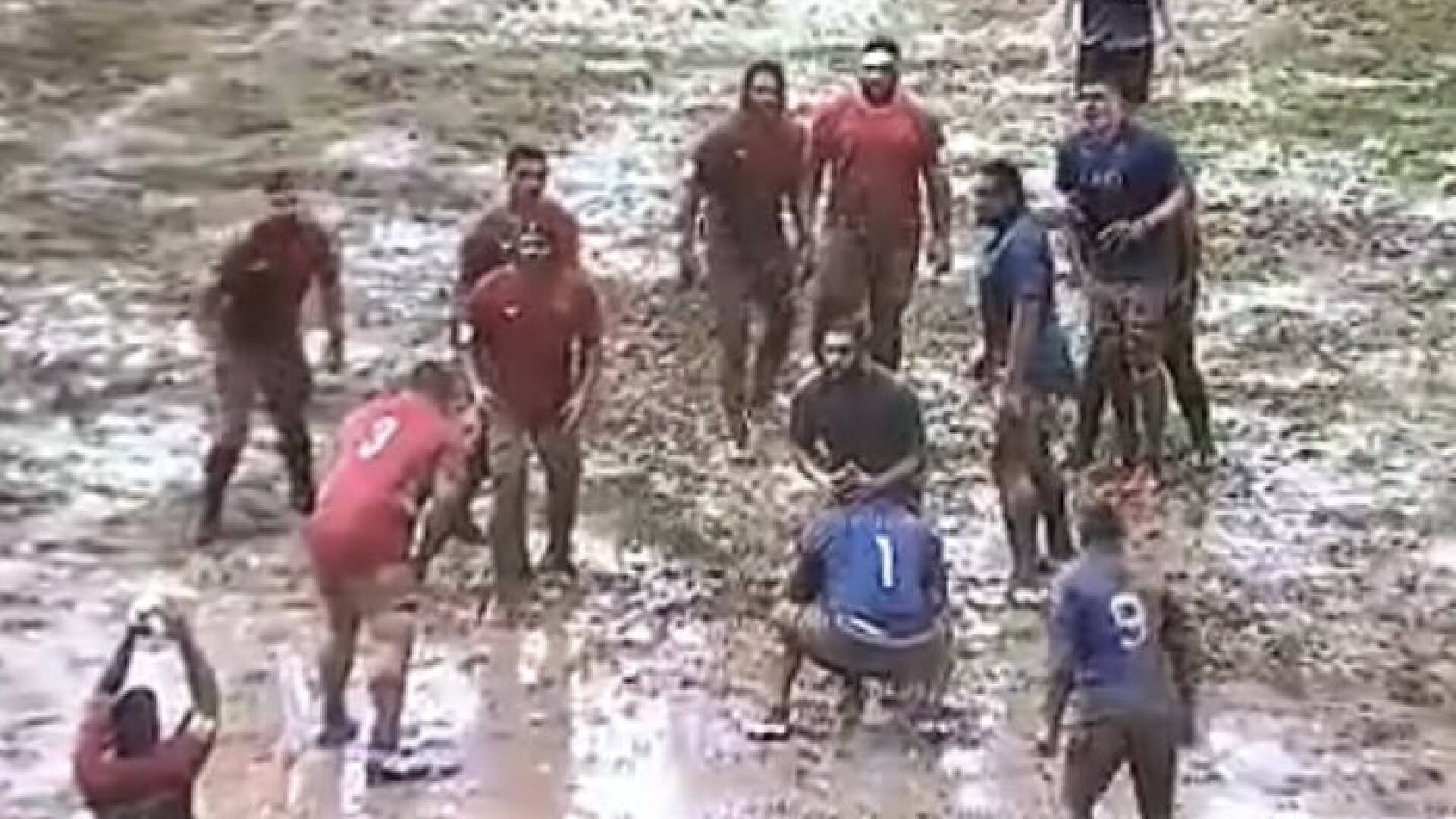Samoa and Tonga had the option of playing last week's game elsewhere - but turned it down

After last weekend’s match between Samoa and Tonga at Apia Park, players and fans alike were quick to take to social media to criticise the conditions.
Apia Park was already awash with water before the match even kicked off, but the field regressed into a muddy, swampy turf that more closely resembled what you would expect to see at the local club rugby grounds, not the kind of surface that two international sides should be playing on.
Tongan representatives Cooper Vuna and Sam Louise both posted on Twitter, criticising World Rugby for letting the match take place at all.
Vuna, in particular, questioned what sort of processes World Rugby undertook to confirm that the ground was safe for the match to take place on.
Please @WorldRugby enlighten us all on what processes you took to allow this game to go ahead? My question is – if a tier 1 team was to play that day ,would the game still go on? #PlayerWelfare https://t.co/TwWkrqkn5N
— Cooper Vuna (@CVUNA) July 28, 2019
Pacific Rugby Players’ Association CEO Aayden Clarke has revealed, however, that World Rugby was more than happy to arrange an alternative pitch for the match. With there being no better stadiums in Samoa or Tonga, however, the match would have to have been taken outside of the Pacific – likely to New Zealand.
“It was about a week out that World Rugby actually called and said they have got some concerns around the weather scheduled for it and obviously the wear and tear that the park may have, so we looked at contingency options then,” Clarke said.
“But it was really important that Samoa had the opportunity to engage with the community and that week was really, really successful – it was just a pity that especially on game-day the heavy rain continued to fall.”
“There was a third option that it was played in a different country, but nobody wanted that to happen and I think I can speak for the Tongans as well because they understand the importance of engaging with the community.
“In the end the weather just really was not favourable leading into it, through the Pacific Games and from the information that I’ve received the Samoa Rugby Union, the ground staff, everybody went to every effort to try and get that park ready but in the end it just wasn’t able to sustain it.”
Understandably, both the Samoan and Tongan unions and players wanted to keep the game within their communities, which left the sides with few options where to play the match.
The field was inspected on game day and both teams were briefed on the conditions. The option of abandoning the game was always available, should the referee deem that the surface was unplayable during the game. Neither Samoa coach Steve Jackson nor Tonga coach Toutai Kefu raised any objections to the continuation of the match.
“While the conditions were not optimal owing to extremely adverse weather and the playing of the Pacific Games competitions the week prior, the match official team deemed the surface playable prior to the match. The same inspection standards were applied as with any test match,” said World Rugby’s Pacific Nations Cup Tournament Director Michael Groom.
Whilst the two sides can perhaps not take too much umbrage with the game going ahead, it’s worth asking the question as to why Apia Park was in such poor condition over the weekend. Obviously the weather in the lead up to the game was awful, but modern day pitches should have the proper infrastructure to deal with heavy rainfall.
“The big difference here is the difference between tier one and tier two infrastructure and facilities,” said Clarke.
“The SRU have already made comments around trying to make improvements at Apia Park in the future and the game on the weekend really highlighted probably what was needed.”
“I think what’s positive is it will start conversations between different governments around exactly how we improve the infrastructure of the stadiums.
“The players are as aware as anybody of the huge role that rugby plays within the communities and the huge benefit for not just business but morale in the communities to have their stars and their idols playing test matches in their home countries.”
Tonga are in Japan for their match with the Brave Blossoms this weekend whilst Samoa are based in Fiji for the next two weeks. Tonga will host Canada in Lautoka next weekend.





































